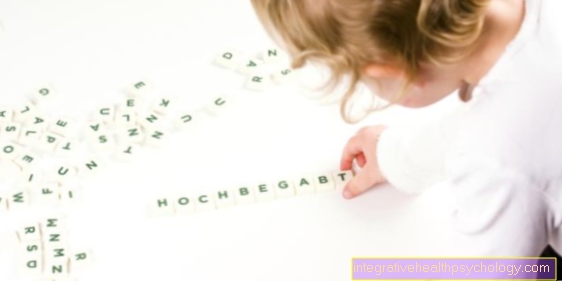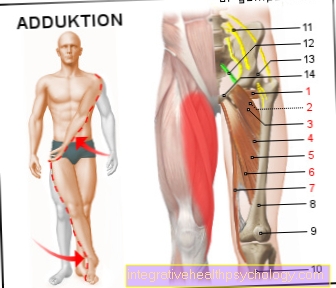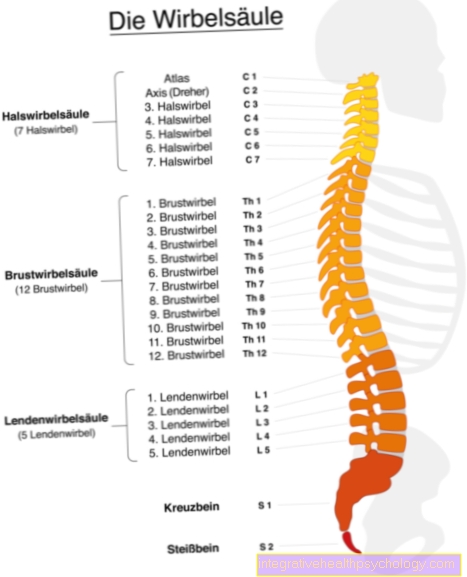Parenting styles
definition
In psychology, pedagogy and sociology, parenting styles are characteristic attitudes and behaviors that parents, educators and other educators use in their upbringing. A parenting style is defined as a complex of parenting practices and attitudes that occur together. There are very different styles of parenting. Parenting styles have been explored since the 20th century. Since then, different styles of parenting have been described by scientists.

What are the Lewin parenting styles?
Kurt Lewin is considered to be one of the most important pioneers in psychology and the founder of modern social psychology. He conducted field experiments in the 1930s on the effects of different parenting styles on youth performance. Together with Ronald Lippit and Ralph K. White, Lewin examined the following parenting styles:
-
Authoritarian parenting style
-
Democratic parenting style
-
Laissez-faire parenting style
This concept with three leadership or parenting styles served and still serves to assign educators to a type. The scheme should help the educator to become aware of their own parenting style and possibly to rethink parenting behavior.
You might also be interested in our next article: Nanny
Autocratic style
The autocratic style of upbringing is similar to the authoritarian style and is in principle a step up from it. Parents determine the activities for their children and ensure that everything is implemented accordingly. The parents require absolute obedience from the children. There are strict rules in the household and the children are basically not entitled to an explanation of the rules. This means that the children do not find out why something has to be implemented and how. An autocratic parenting style is based on blind obedience and absolute acceptance. Unfortunately, this means that the children hardly develop any creativity or initiative. Children raised in an autocratic manner often develop inferiority complexes and tend to reduce their insecurity through aggression due to a lack of self-confidence.
Authoritarian style
The authoritarian style of upbringing is defined by the fact that the educator is in charge. The educator gives the child orders and at the same time takes full responsibility for the child's actions. He does not discuss or communicate with the children about future activities or tasks, but only informs them when the children are to complete the tasks or when certain activities are due. This is a cool style, which means that the educator is rather impersonal. He criticizes and praises personally. However, the educator must not threaten the child or use extremely authoritarian means.
An authoritarian parenting style has a huge impact on children's behavior. It significantly restricts the children in the development of behavior and inhibits the development of spontaneity and creativity. At the same time, an authoritarian style makes children dependent on the educator and fixes them very much on the educator.
The children often work hard for the recognition of the educator and less for personal drive and fun with the matter. In groups with other children, children who are brought up in an authoritarian manner are often noticeable for suppressing the weaker and behaving aggressively. It is often a form of the children to reduce their frustrations, which they cannot do with educators.
Democratic style
The democratic style of upbringing is characterized by the fact that the educator includes the children in his decisions. This means that the educator informs the children about what activities are planned so that the children can prepare for them. In addition, decisions are made jointly by the educator and the children. The children have a say and are encouraged to participate. The children are also allowed to make their own decisions, for example regarding group work with other children or choosing a particular solution. An educator praises and criticizes the children in a factual and constructive way and is able to respond individually to the difficulties and questions of individual children. The children are encouraged to take responsibility and learn to solve problems independently. The democratic upbringing style promotes the creativity of the children enormously and leads to a high degree of constructiveness on the part of the children.
Egalitarian style
In the egalitarian parenting style, the hierarchical relationship is very different from the styles described above. The basic principle here is equality. The educators and children are on the same level here. With complete equality, all decisions are made together. The child always has the right to express their opinion and this must be taken into account when making a decision. However, here children not only have the same rights as their parents or educators, but also the same duties, for example household chores.
In everyday life, an egalitarian parenting style can lead to problems, as every decision is discussed with the child. That can cost a lot of time and nerves. If the father has to go to work on time in the morning and the child decides not to go to school, a conflict inevitably arises. In practice, conflicts of this kind often lead to the failure of the egalitarian style of upbringing.
The advantages of an egalitarian upbringing are that the child learns to articulate and to discuss objectively. Parents keep talking to their children, which can deepen the relationship. Nonetheless, this style is highly controversial. It assumes that the children are mature enough and responsible. An egalitarian parenting style requires a lot of time and patience to nurture the child.
Laissez-faire style
The laissez-faire parenting style dispenses with all boundaries and rules. Here the concept of upbringing is questioned and the children should in principle simply do it. It is a passive upbringing style in which parents let the children act according to their will and in principle only intervene when it is necessary to protect the child from the dangers of harm. There are no disciplines or rules, but also less praise and blame.
In society, this style is controversial because, according to scientists, there are many disadvantages. The children do not learn any limits, often behave disrespectfully and are sometimes unable to admit wrongdoing. The children lack orientation and at the same time recognition and confirmation are neglected. Some children find it difficult to be considerate because they never learned to be considerate. The children often feel alone because the parents are too passive as important caregivers. Laissez-faire style can lead the children to develop great difficulties as adults.
Negative style
To negate means to regard something as non-existent or to deny it. A negating parenting style is also called a neglecting style. The reason for this is that the parents deliberately do not take part in bringing up the children. The parents are indifferent and disinterested in the child and leave it to itself. Children raised negatively have no support in development. The neglect often causes severe physical and psychological damage to the children. The children are alone and have problems in their social environment, in kindergarten and at school. They have no support and security, no rules or limits. Unfortunately, in practice, a negative parenting style is often associated with physical violence in the family.
The disadvantages of this style are enormous. The children can suffer from inadequate nutrition and hygiene, have great difficulties in bonding and often do not develop a sense of self-worth. They stand out due to conspicuous social behavior and show severe deficits in school. In adulthood, those affected suffer particularly from emotional inaccessibility and are prone to drug and alcohol abuse. They often find it difficult to fit into social life and to fit into hierarchies.
Comparison of advantages and disadvantages
The autocratic style of parenting is based on obedience and total acceptance. The children do what their parents say and don't question the rules. One advantage is that the children can get used to hierarchies later in their working life. The disadvantages outweigh this, however. Children raised in an autocratic manner rarely develop creativity or initiative. They are used to doing what they are told to do. Often the children develop inferiority complexes. They are less self-confident than other children and often tend to reduce their insecurities through aggressive behavior. In school, for example, it happens that these children attack the weaker because they don't know any other way and don't know how to express their feelings.
In the authoritarian style of upbringing, there is a cool climate between the parent and child. The educator is impersonal and alone decides everything. It severely restricts the children's behavior and makes it dependent on the educator. A major disadvantage is that the child's spontaneity and creativity are hardly or not at all encouraged. In groups, children who are brought up in an authoritarian manner often show aggressive and suppressive behavior towards other children.
In contrast, the democratic parenting style is very opposite. Educators and children make decisions together and the children are encouraged to act independently and solve problems independently. In the democratic style of upbringing, the educator praises and criticizes the children in a factual and constructive way, so that a high degree of creativity and constructiveness is created in the children. The children have comparatively better opportunities to develop their characters and develop independence.
The egalitarian parenting style is highly controversial.The great advantages of the egalitarian style are that the children become independent, creative and learn at an early age to articulate their needs accordingly and to discuss them objectively. Parents are close to the child in this upbringing, which can lead to a deep connection between parent and child. However, an egalitarian style of upbringing requires a lot of time and patience if it is to be implemented consistently for the benefit of the child. If a child decides not to go to the dentist or does not feel like going to school when they have a toothache, the parents often have to have long discussions to convince the child of the benefits of certain things. This can be very exhausting and the parents have to be patient so that certain decisions made by the child do not harm the child themselves. However, the egalitarian style often fails in practice.
The laissez-faire parenting style is also very controversial. Here the children are allowed to do what they feel like and the parents intervene if it is for the child's benefit. This style is suitable for children who are responsible and questioning things early on. Parents' passive behavior can prevent children from learning many things, such as boundaries, respectful behavior, and being considerate. Children who have difficulty orienting themselves get almost lost in the laissez-faire style and often feel lonely.
The most critical parenting style is the negating style, in which the children are neglected. The children are dependent on themselves and do not learn essential aspects of their development, such as rules, boundaries and respectful interaction with other people. The children often lack self-esteem and they have difficulty adapting in school and in the social environment, so that they are often noticeable for school deficits and aggressive behavior. Children who grow up with a negative parenting style have great difficulties in adulthood to integrate themselves into society and into working life. A negating style can cause those affected to develop severe mental and physical problems. A negating, neglecting parenting style should by no means be consciously applied.
Which parenting style is best for my child?
Children should have the opportunity to become happy, self-confident and responsible. The “best” parenting style creates this development for a child. We think the right parenting style is a flexible style. The emphasis should be on the democratic style of upbringing. However, you have to meet the child depending on the situation. This means that in certain situations there is authoritarian action with very clear rules, while in other situations everyone at the table decides what is to be done. Important decisions for the well-being of the child are consequently made by the parents alone, while other issues are discussed and agreed on on an equal basis.
Every child is different, has different strengths and different weaknesses. So that a child grows up as carefree as possible, you should always approach the child with empathy and patience. Children need self-confidence. Parents can strengthen this by motivating children to try out their skills and interests. It starts with playing as a baby and continues to develop.





























